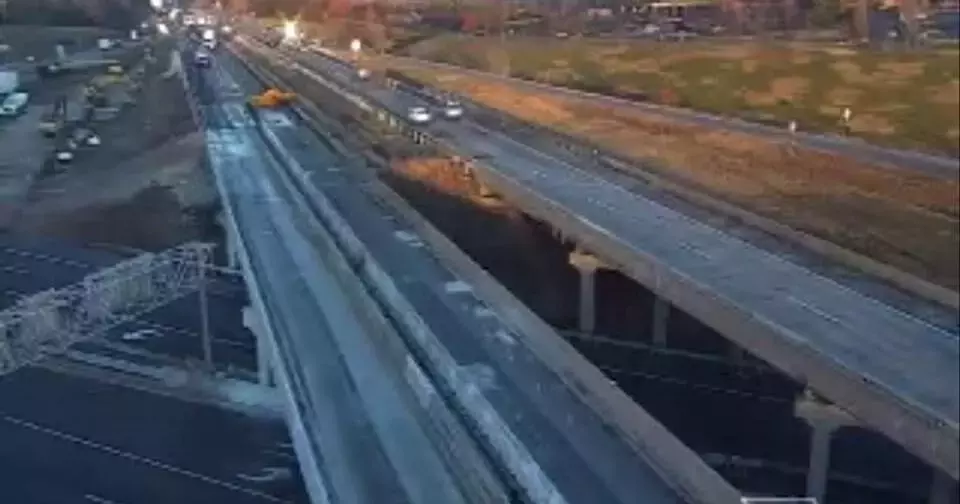
A significant traffic disruption occurred on I-44 westbound near Joplin, Missouri, following an accident involving a large vehicle. Around mid-afternoon, a tractor-trailer collided with a barrier and veered off the road, leading to a substantial fuel spill that has made the area extremely slippery. Authorities are working diligently to manage the situation, while traffic is being rerouted to ensure safety.
Fuel Spill Poses Hazardous Conditions
The collision resulted in a hazardous environment as the tractor-trailer's fuel tanks released a considerable amount of fuel across the bridge surface. This created treacherously slick conditions for other vehicles. Emergency services have taken immediate action to contain the spill, collaborating with MoDOT to address the issue. The swift response aims to mitigate any further risks posed by the slippery conditions.
In more detail, when the truck struck the barrier, it caused damage that led to the leakage from its fuel tanks. The spilled fuel spread over a wide area, covering parts of the bridge and making it perilous for drivers. To prevent additional accidents, authorities quickly implemented measures to control the spill. They worked tirelessly to plug the source and began cleanup operations. The collaboration between emergency responders and transportation officials was crucial in managing this dangerous scenario effectively. Their efforts were directed at ensuring the safety of all road users and minimizing the impact on traffic flow.
Traffic Management and Diversion Strategies
To handle the unexpected closure of I-44 westbound, traffic management strategies were promptly put into place. Vehicles were redirected at specific exits to avoid the accident site. This redirection caused delays, with traffic backing up several miles, impacting travel plans for many commuters. Drivers were advised to seek alternative routes and stay updated through local news channels.
The diversion plan involved rerouting traffic at strategic points to prevent congestion from worsening. As a result, vehicles traveling westbound experienced backups extending to Rangeline. Local authorities provided real-time updates to inform drivers about the situation and suggest viable detours. Media outlets played a vital role in disseminating information, helping motorists make informed decisions. By staying alert and adhering to official guidance, travelers could navigate around the affected area more safely and efficiently.
